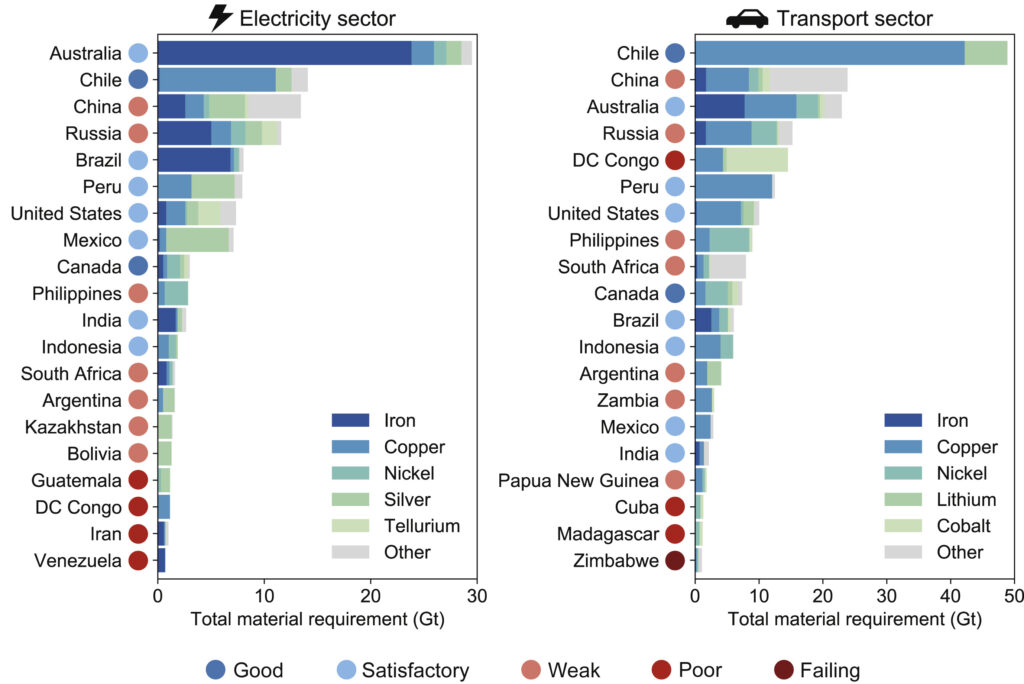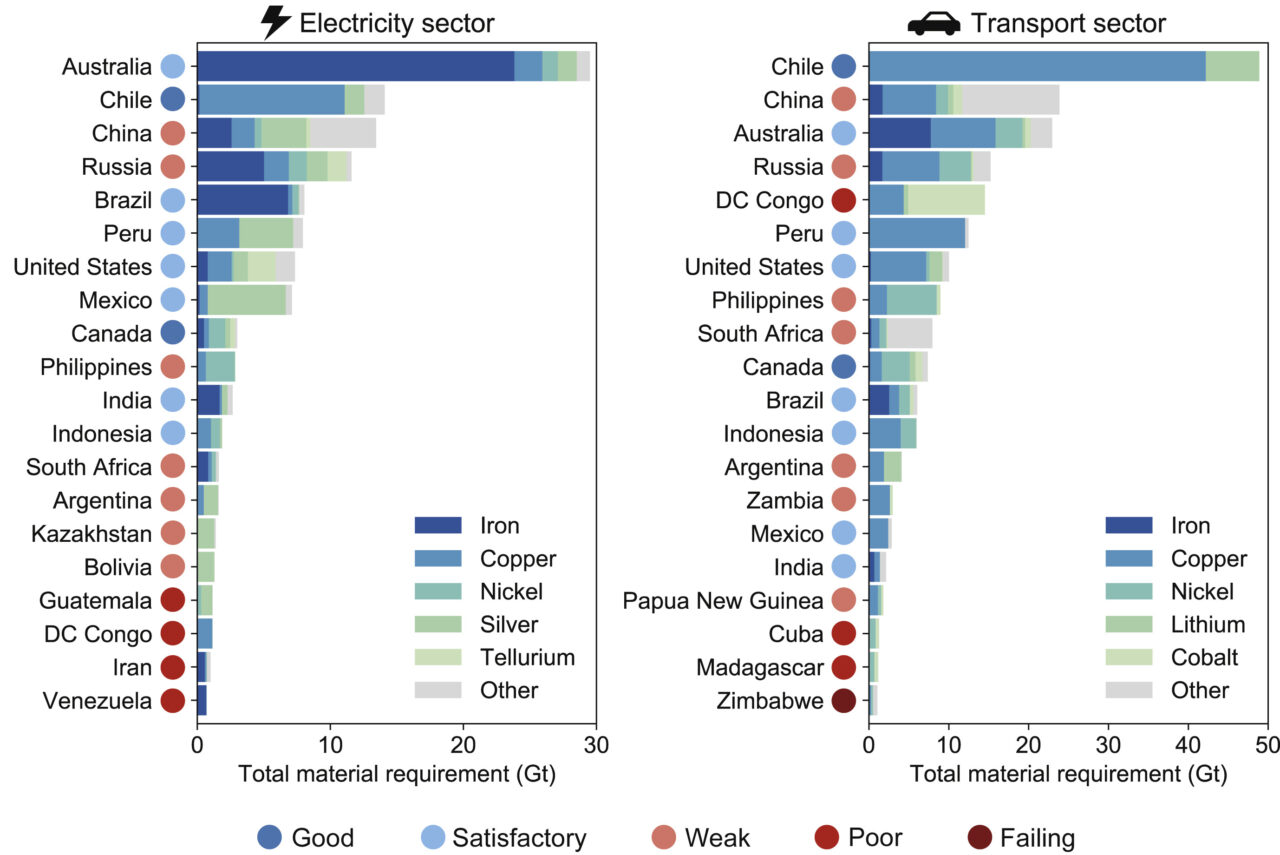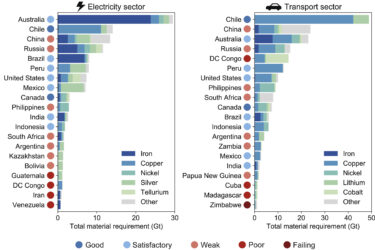
Abstract
The global transition to fundamentally decarbonized electricity and transport systems will alter the existing resource flows of both fossil fuels and metals; however, such a transition may have unintended consequences. Here we show that the decarbonization of both the electricity and transport sectors will curtail fossil fuel production while paradoxically increasing resource extraction associated with metal production by more than a factor of 7 by 2050 relative to 2015 levels. Importantly, approximately 32–40% of this increase in resource extraction is expected to occur in countries with weak, poor, and failing resource governance, indicating that the impending mining boom may result in severe environmental degradation and unequal economic benefits in local communities. A suite of circular economy strategies, including lifetime extension, servitization, and recycling, can mitigate such risks, but they may not fully offset the growth in resource extraction. Our findings underscore the importance of institutional instruments that enhance the resource governance of entire low-carbon technology supply chains, along with circular economy practices. In the absence of such actions, the decarbonization of electricity and transport sectors may pose an ethical conundrum in which global carbon emissions are reduced at the expense of an increase in socio-environmental risks at local mining sites.
Authors
Takuma Watari, Keisuke Nansai, Kenichi Nakajima and Damien Giurco
Journal
Journal of Cleaner Production, 2021, 312, 20, 127698 Link


